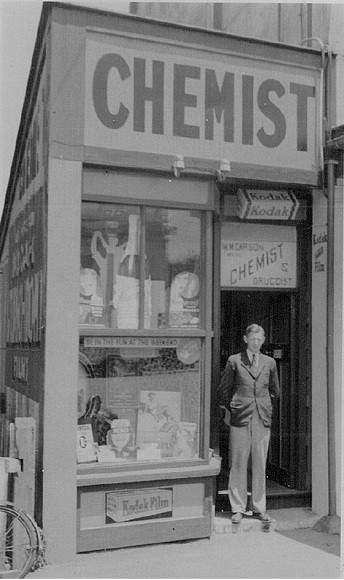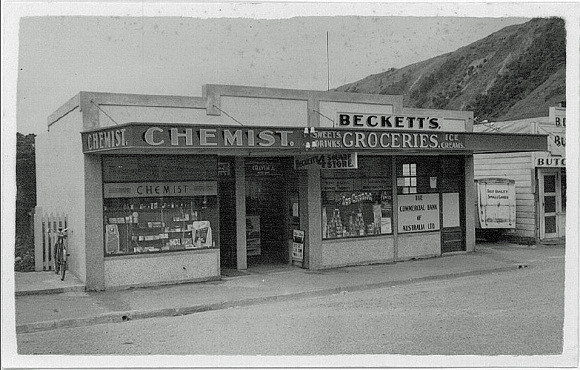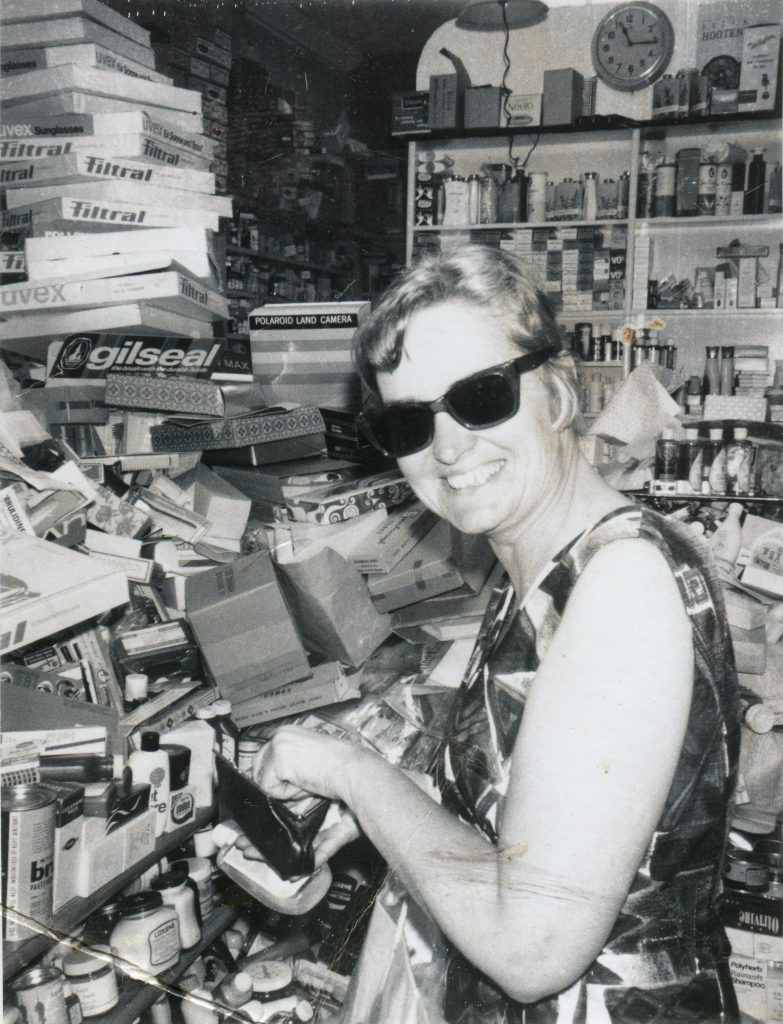William (Bill) Carson opened his chemist in Paekākāriki in the late 1920s or early 1930s and closed it in 1981, after a fall from his bicycle and a broken hip. For some of the 50 plus years the shop remained open, it was possibly the only chemist operating between Plimmerton and Levin. A Plimmerton resident’s memory of locals’ reliance on Carson’s Chemist shows its important for other coastal settlements. They would give their prescriptions to the guard on the train to take it up to Mr Carson in Paekākāriki, who would then make up the prescription and send it make with the guard on the next train going south.
Bill Carson came to Paekākāriki, having begun training as a doctor in Dunedin before changing to training to be a chemist. He had also worked in two Wellington pharmacies. He first set up his pharmacy in a lean-to building beside Holtom’s Buildings in Beach Road and later moved to a shop across the road at 12 Beach Road. This shop was also small, and made to feel even smaller given the wide range of goods on shelves and even more stacked throughout the shop in packing cases and boxes. People commented that there was often little room for customers! Indeed, the shop was so crowded, that some local people remember tourist buses stopping for people to visit the smallest chemist with the biggest stock. Despite what might have seemed like chaos to visitors, however, Bill could always find whatever specific thing a customer wanted.

g


As well as providing such a wide range of goods and filling prescriptions, the chemist acted as an agent for photo development –Bill was a keen photographer himself, with many of his photos now kept at the Paekākāriki Station Museum.
Bill Carson was a well-loved part of Paekākāriki’s community life for many years, both for his health advice and his wider community contributions. He was perhaps most valued for his health advice and his readiness to take the extra mile help local people in times of need. For many local people, the chemist was their first port of call for medical advice. During World War 2 (1939-45), for instance, M Carson was often the only source of medical advice for the community given a shortage of doctors. Locals also talked about Mr Carson’s readiness to suggest home remedies or low-cost treatment options rather than something expensive off the shelf. Favourites were various water-based options – like salt water to treat low grade infections. And he was not shy to question treatment advice a customer’s doctor may have recommended. But he would also recommend visits to the doctor or the hospital if he saw that that was the appropriate response. He also delivered prescriptions to customers in times of emergency, especially if children were involved, even when that meant closing the shop for a while. So, it was a common sight to see Mr Carson cycling around the village on his delivery run.
Bill Carson’s other community activities included involvement in local politics, playing the piano at local dances, and providing a small library. Lions International presented Bills Carson with its International Medal of Merit in 1981 in recognition of his outstanding community contribution.
